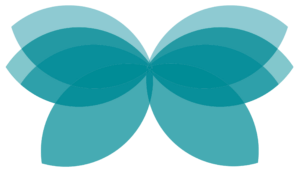With greater access to care, more research on women’s healthcare issues, advances in detection screenings and treatments and focus on mental healthcare, women are living longer, healthier lives than ever.
Even better news: Continuous awareness and ongoing adjustment of healthy habits— whether you’re a teenager, a grandmother or any age in between—elevates wellbeing and prevents future health issues. According to Caroline Mears, DO, Internist, every wellness journey begins with setting goals and adjusting over time to achieve them.
“I like to refer to it as an ongoing journey of lifestyle modification,” Dr. Mears says. “A healthy diet, regular exercise, adequate sleep, managing stress and limiting alcohol are the pillars of lifestyle modification. While these seem like simple things, implementing change can feel like a tremendous uphill battle, which often discourages us from making progress.”
However, making minor modifications can reduce and even eliminate the need for medication to treat common diseases, such as hypertension, hyperlipidemia, heart disease and even autoimmune conditions and mental health disorders.
“But let’s not try to tackle everything all at once,” Dr. Mears added. “Start with one small change…something you know you can achieve…and focus on it. Keep building on that success and the benefits will be noticeable over a lifetime.”
It doesn’t matter how old you are today. Committing to positive health activities at any age will help you live a more vibrant life.

Top tips for teens (and the parents who raise them)
Establishing healthy behaviors early is a tremendous advantage since growing girls are more likely to carry forward good habits. Here are four priorities for teens to focus on now:
Exercise. Figure out what works for you. Do you like solo activities, like running or working out, or do you prefer group activities, like yoga or training for a marathon with your besties? Find something you love and, as the saying goes, just do it.
Sleep. Being a teen is a blast—you start gaining independence, you get to go out with your friends and, before you know it, you’re off to college. Trying to give your body and mind a mostly consistent sleep schedule will help you bounce back when the inevitable exuberance of being young makes for late nights.
Screen time management. Excessive screen time can lead to a range of issues, including sleep problems, obesity and social isolation. It’s best to limit screen time and prioritize face-to-face social interactions. This can include spending time with friends, joining a sports team or volunteering in the community.
Healthy eating. We’re not talking about dieting, but really getting to know the foods that best fuel the female body. Understanding the impact highly processed foods, sugars and saturated fats have on your body will help you maintain a healthy, lifelong relationship with food.

“Start with one small change…something you know you can achieve…and focus on it. Keep building on that success and the benefits will be noticeable over a lifetime.”
Caroline Mears, DO, Internist
A Girl’s Guide to Body Changes
Your body is going to change a lot, especially during puberty. The more you understand your body, the changes it’s going through, and how it’s impacting you physically and mentally, the better prepared you’ll be to manage these changes:
Menstruation: Not all periods are alike, so it’s best to focus on yours only. Understanding menstrual cycles and the hormonal changes that occur during menstruation is important for overall reproductive health. Knowledge about proper menstrual hygiene, including using appropriate menstrual products and changing them regularly, can prevent infections and discomfort. Recognizing signs of irregular or abnormal menstrual cycles and seeking medical advice can help prevent and manage conditions such as polycystic ovary syndrome (PCOS) and endometriosis.
Contraception: It’s a fact—once you begin menstruating, you can get pregnant. Teens are not emotionally prepared for childbirth, so practice safe sex if you choose to engage. Talk with your parents, older sibling or someone you trust about protecting your body from unwanted pregnancy. And wait if you want to. It’s your body, so you are in charge.
Sexually Transmitted Infections (STIs): As your hormones change, so will your feelings about engaging in sexual activities. And if you choose to participate, you need to understand STIs are an associated risk. Many STIs are low key and don’t have noticeable signs, so you can’t tell by looking if you or a partner has one. Get tested together with your partner before having sex. And if you can’t wait, use a barrier method such as a condom and/or sex dam.
Mental Health: How we mentally process the world around us changes as our bodies change. Like any other body part, our brains have health issues, too, such as anxiety, depression and eating disorders. Biological factors or chemical imbalances in the brain can significantly impact mental health. Additionally, certain physical illnesses or genetic predispositions can influence brain function and increase the risk of developing mental health disorders. Ask for the help you need and deserve from a parent, your doctor or someone you trust who can help guide you to the right resources.
Adulting 101: Team Support Makes It Easier
Many women juggle personal relationships and professional priorities during early adulthood, but it’s also a time to emphasize personal wellbeing. It’s important to establish a relationship with a healthcare provider so you can begin receiving regular preventive care, such as:
Early detection and prevention. Many health conditions, such as sexually transmitted infections and certain cancers, are more common in younger women. Regular check-ups and screenings can help detect these issues early, allowing for more effective treatment.
Education and guidance on reproductive health. Young women may have questions or concerns about reproductive health, such as birth control options or fertility concerns. Building a relationship with a healthcare provider can provide a safe space to discuss these topics and receive accurate information.
Access to mental health resources. The early 20s can be a time of significant life transitions and stress related to your career, navigating relationships or starting a family. A healthcare provider can offer guidance on mental health resources to help manage stress and promote overall wellbeing for a lifetime.
Thrive and be fabulous: Your 30s, 40s and 50s
As women enter these stages, it can become more difficult to maintain a healthy weight, especially while our lives get busier with increased work and family commitments, and metabolisms and hormones begin to change.
“So many women put their own healthcare to the side,” says Catherine Chamberlin, DO, Family Medicine physician. “They make appointments for their spouse, their children and their parents—but never for themselves. It’s important to prioritize keeping yourself healthy to maximize wellness and quality of life.” Additionally, it’s essential to take a step back and focus more on stress management techniques, such as exercise and mindfulness, and seek support from healthcare providers or mental health professionals. Plus, this is a time in your life for:
Monitoring reproductive health. Women in their 30s may be considering starting a family or expanding their family. Maintaining good reproductive health is crucial during this time, as it can affect fertility and pregnancy outcomes.
Preventing/managing chronic diseases. Many chronic diseases, such as diabetes, heart disease and certain cancers, become more prevalent as women age. Regular check-ups and screenings can help detect these conditions early, allowing for more effective management and prevention.
Managing menopause/perimenopause. As women enter their 40s and 50s, they may experience cycle changes and symptoms of menopause or perimenopause. This is not something you have to suffer through. Healthcare providers can offer guidance and treatment options to help positively manage these changes.
Preserving bone health. Women lose bone density as they age, which can increase the risk of osteoporosis and fractures. Regular exercise, adequate calcium and vitamin D intake and medication, if necessary, can help maintain bone health.

“Self-care is so important. Women deserve it! We work so hard and keeping ourselves healthy is the foundation upon which we are able to persevere.”
Catherine Chamberlin, DO, Family Medicine Physician
Vitality for the Ages: 60s, 70s and beyond
As women enter their golden years, falls become a significant health concern. It’s important to take steps to prevent falls, such as staying active, wearing appropriate footwear and removing tripping hazards in the home.
It is also common to see women taking a litany of medications. While the intention is good, sometimes too many medications can have negative health effects. Working with your primary care doctor to go over care goals can often preserve or improve quality of life. Other health considerations are:
Managing menopause/postmenopausal symptoms. Women in their 60s and beyond may still experience symptoms, such as hot flashes and vaginal dryness. Healthcare providers can offer guidance and treatments for optimal management.
Maintaining cognitive function. Aging affects brain function, and older women may be at increased risk for dementia and other cognitive disorders. Regular exercise, a healthy diet and engaging in mentally stimulating activities can help maintain cognitive ability.
Staying connected. As women age, social connections and overall wellbeing become increasingly important. Engaging in social activities, volunteering and maintaining hobbies can help promote a sense of purpose and happiness.
We’ve Got This!
By prioritizing sleep, exercise, nutrition, hydration, stress management and mental health—as well as establishing a lifelong relationship with healthcare providers—you can take control of your health and feel your best at every age. And remember, you’re not alone on this journey. You have a team of experts at Aspen Valley Primary Care to guide you. And as women, it’s essential to support each other.
“We are so lucky to have a great community here,” Dr. Chamberlin says. “Encourage each other to prioritize wellness, selfcare, screenings and preventive care. Keep each other healthy and well so we have friends to share these grand adventures of life.”





